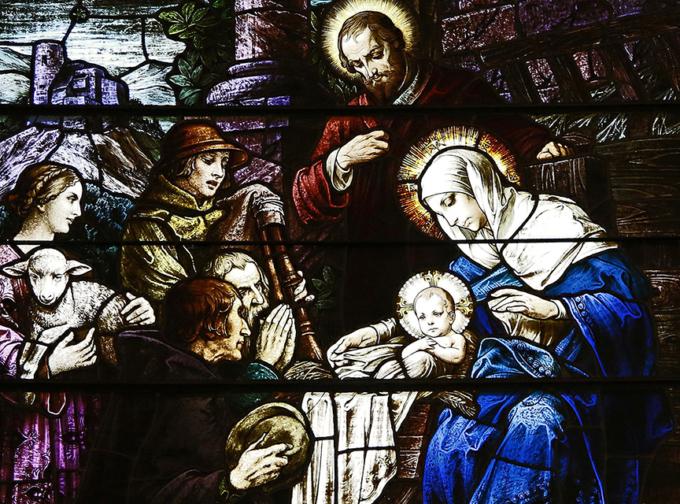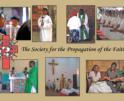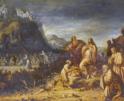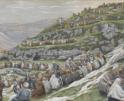
Faith
I'll venture to guess that Mary knew that every baby brings his own loaf of bread. She trusted God's providence completely and withheld nothing from him.

Wolfe
''Every baby brings his own loaf of bread." That's the proverb Father Tom Dilorenzo used to tell me whenever we were expecting another child. That was a frequent occurrence for about a decade. But over the course of those years and the ones that followed, the truth of those words was confirmed to me time and time again.
Some of our children were born when we did not have room for them. The year we had six kids and my mom in a six-room house with one bathroom was a challenge. Some came when my husband was just starting a new job, others during a period of unemployment and without health insurance. Stressed, we often wondered how things could ever work out, and yet, somehow, they always did.
Eventually, we learned that it didn't matter whether it was "a good time to have a baby" or not. In fact, our experience taught us that there's no such thing as a "good time to have a baby." But what this actually means is that there isn't ever a "bad time" either. Over the years, I've met plenty of older women who told me they wish they'd had one more child. I have never met anyone who wishes they'd had one less.
The bottom line is that babies are blessings whenever they come, and there's always room for one more. God loves sending babies into the world and often teaches us to trust him more once they arrive. Our God, after all, is a loving Father. He knows how to provide.
In Advent, we turn our hearts to Mary's child, one whose coming she and the whole world hoped for -- but didn't plan. She was betrothed, not married. Her intended husband knew without a doubt that the child in her womb was not his. And they were poor. Poor enough not to have a place in Bethlehem ready and waiting for them.
I'll venture to guess that Mary knew that every baby brings his own loaf of bread. She trusted God's providence completely and withheld nothing from him. Knowing his goodness, Mary put her entire life at his disposal. She didn't need to see the whole plan; it was sufficient for her to know whose plan it was.
These weeks leading up to Christmas aren't for play-acting. We don't observe Advent in a holier way by pretending that Christ has not come, that the baby born 2,000 years ago has somehow not yet arrived. But we should contemplate what it meant for Jesus to enter the world -- our world -- when he did. We should marvel at how God could consider a town so obscure and a time so dark the perfect place and "the fullness of time." But there is something more, an even deeper mystery to stir our hearts.
This child, born in a stable on the outskirts of a town called House-of-Bread, comes to us on every altar and remains with us in every tabernacle. This baby, wrapped in swaddling clothes and laid in a manger, has given himself to us as food. For Christ, it was not enough to be with us; he wanted to be within us. It was not enough for Jesus to be one of us; he wanted to be one with us.
In the Eucharist, Jesus comes to us as both shepherd and lamb, both priest and victim. He does not simply multiply loaves to feed our bodies; he imbues them with his abiding presence to satisfy the hunger of our souls. He does not merely share in Israel's Passover, but embodies and fulfills the Passover -- or Paschal -- Mystery. Christ Jesus is not only the Incarnate Word-Made-Flesh; he gives that flesh for the life of the world. And more than any infant before him or since, this baby brings his own loaf of bread.
- Jaymie Stuart Wolfe is a Catholic convert, wife, and mother of eight. Inspired by the spirituality of St. Francis de Sales, she is an author, speaker, and musician, and provides freelance editorial services to numerous publishers and authors as the principal of One More Basket. Find Jaymie on Facebook or follow her on Twitter @YouFeedThem.
Recent articles in the Faith & Family section
-
Did you know?Father Robert M. O'Grady
-
Sowing the Seeds of FaithMaureen Crowley Heil
-
Bread left overScott Hahn
-
Scripture Reflection for July 28, 2024, Seventeenth Sunday in Ordinary TimeJem Sullivan
-
What the universal call to holiness entailsDr. R. Jared Staudt





